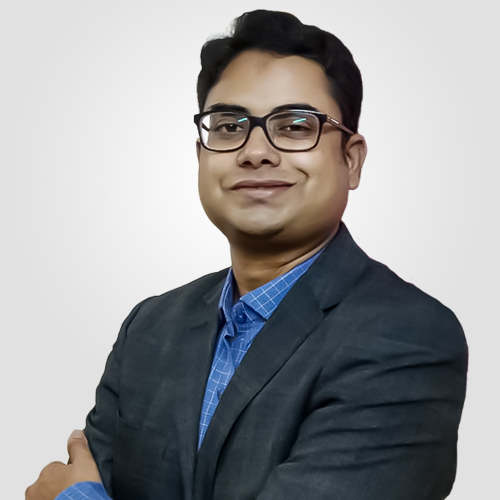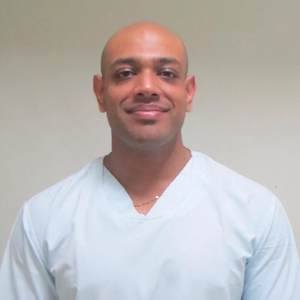What is the role of Gastroenterology in controlling various diseases? Sep 19, 2021
Gastroenterology is the most informative and progressive branch of medicine that concerns the entire digestive tract, the gallbladder, liver, bile ducts, and pancreas. Gastroenterologists specialize in diagnosing and treating disorders involving the gastrointestinal (GI) tract and the liver.

What is Gastroenterology?
Gastroenterology is a specialty of medicine that studies the normal function and illnesses of the digestive system, often known as the gastrointestinal (GI) tract. The GI system comprises the mouth (tongue, epiglottis, and salivary glands), throat (pharynx and esophagus), stomach, liver, pancreas, gall bladder, small and large intestines, rectum, and anus.
Gastroenterology plays a crucial role in:
- Digestion of food and its transportation.
- Nutrient absorption.
- Removal of waste from your body.
How does the gastrointestinal tract work?
We know the esophagus as a food pipe. This food pipe is a hollow, dilated muscular tube that promotes transporting the bolus (chewed food particles) from the mouth to the stomach. The intestine is the most vital part of the digestive tract, where much of the digestion and absorption of food occurs. It comprises the large intestine (colon or large bowel) and the small intestines (duodenum, jejunum, and ileum). Water gets absorbed here, and they store the remaining waste material as feces that we removed by defecation.
Who are Gastroenterologists?
Gastroenterologists diagnose and treat diseases affecting the entire GI tract, which runs from the mouth to the anus. Gastroenterologists are competent to care about any part of the digestive system.
Listed below are some areas of interest for the doctors' community in gastroenterology.
- Hepatology: an exhaustive study of the liver, gall bladder, biliary tree, and its disorders.
- Pancreas: pancreatic disease or related inflammation
- Transplantation of some digestive organs (short bowel transplants, intestine transplantation)
- Inflammatory bowel disease (IBD), also known as chronic gastrointestinal inflammation, is a condition in which your digestive tract gets inflamed.
- Gastrointestinal cancer in areas of the digestive system
- Endoscopic surveillance reflux esophagitis is very common.
- Reflux disease or (GERD).
Gastroenterologists are not surgeons, but they collaborate with them occasionally. Gastro Surgeons tackle a variety of challenging gastrointestinal tract (GI tract) surgeries with utmost care.
How many challenging medical conditions or diseases do gastroenterologists treat?
Gastroenterologists are experts in a variety of disorders that affect the digestive system.
Medical conditions can include:
- Acid reflux disease
- Ulcer peptic or ulcerative colitis
- IBS (Irritable bowel syndrome)
- Hepatitis C, a type of viral infection that causes jaundice
- Polyps, or growths, which occur in the large intestine (a tiny clump of cells)
- Jaundice, or yellowing of the skin (inflammation in the liver
- Hemorrhoids (inflamed or enlarged veins in the lowest part of your rectum and anus)
- Bloody stools (Blood associated with elimination)
- Pancreatitis (inflammation of the pancreas)
- Colon cancer (known as bowel cancer, or rectal cancer)
What are the tests that only gastroenterologists perform?
These specialists perform non-surgical techniques, such as:
- Use of endoscopic ultrasounds to check the upper and lower gastrointestinal tracts and other internal organs.
- Colonoscopy for the detection of colon cancer and polyps.
- Endoscopic retrograde cholangiopancreatography (ERCP) detects gallstones, tumors, and scar tissue in the bile duct area.
- Sigmoidoscopies to check for blood loss or bowel pain.
- The liver biopsy to determine inflammation, fibrosis.
- Sachet endoscopies are procedures that examine the small intestine.
- Double balloon enteroscopy is a procedure that examines the small intestine.
When should you see a gastroenterologist?
Your general practitioner doctor may refer you to this specialist if you:
- Have inexplicable or appearance of blood in your stool indicating this may indicate bleeding somewhere in your digestive tract.
- If you have trouble swallowing issues
- If you have persistent discomfort or colic pain
- If you have frequent constipation
- If you have chronic diarrhea issues
- If you have frequent heartburn
- If you experience trouble with your bowel movements
- If you are a senior citizen, and your doctor refers you for preventive care.
All of the above are triggers for scheduling an immediate appointment with a gastroenterologist.
Conclusion:
Gastroenterology is the most informative and modern branch of medicine that handles the digestive tract and the related organs. Gastroenterologists specialize in the diagnosis and treatment of diseases affecting the entire GI tract.
You can request an appointment at Apollo Spectra Hospitals, Chembur, Mumbai.
Call 1860 500 2244 to book an appointment.
Colonoscopy is a medical technique that allows a gastroenterologist to see the entire length of the large intestine (colon). A colonoscope is inserted through the rectum and into the colon to detect abnormal growths, inflammatory tissue, ulcers, and bleeding. A colonoscopy also allows your gastroenterologist to examine the lining of the colon and remove any foreign objects.
A polyp is an abnormal growth in the colon's lining. Polyp comes in many sizes and shapes, and though the majority are benign (non-cancerous), some can turn cancerous. Pre-cancerous polyps are removable as a preventative measure for colorectal cancer. Your gastroenterologist may use the fulguration (burning) technique that kills tiny polyps and large polyps. This technique is called snare polypectomy. Gastroenterologists remove the polyp from the intestinal wall using a wire loop (snare) that goes through the scope without causing you any discomfort.
Capsule endoscopy is a procedure to identify bleeding sources, finding polyps, inflammatory bowel disease, ulcers, and minor intestinal cancers. Your gastroenterologist gives you a PillCam with a sensor device; the sensor device captures photographs as it travels through your stomach. Your gastroenterologist will track the position of the sensor. He may download pictures or images after eight hours for review purposes.
Our Doctors
DR. AMIT THADANI
MS (General Surgery)...
| Experience | : | 17 Years Experience |
|---|---|---|
| Speciality | : | General Surgery, Lap... | Location | : | Chembur |
| Timings | : | Available by prior a... |
DR. ERBAZ MOMIN
MBBS, MS(Surg), DNB(...
| Experience | : | 12+ Years Experience |
|---|---|---|
| Speciality | : | General Surgery, Lap... | Location | : | Chembur |
| Timings | : | Mon, Wed, Thur, Sat ... |
DR. DILIP RAJPAL
MS, MAIS, FICS (USA)...
| Experience | : | 15 Years Experience |
|---|---|---|
| Speciality | : | General Surgery, Lap... | Location | : | Chembur |
| Timings | : | Tue, Thur, Sat : 3:0... |
DR SAMBIT PATNAIK
MBBS, PGDHHM, MS- GE...
| Experience | : | 15 Years Experience |
|---|---|---|
| Speciality | : | General Surgery, Lap... | Location | : | Chembur |
| Timings | : | Mon - Sat : 9:00 AM ... |
Our Top Specialities
NOTICE BOARD
CONTACT US
CONTACT US
 Book Appointment
Book Appointment






.svg)
.svg)
.svg)
.svg)








